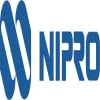NEW YORK — Merck & Co.'s investor day suggested it is a company on top.
Stage lights turned the tall, white walls of 583 Park Avenue a blueish green, reminiscent of the drugmaker's logo. Rows of gold-painted chairs seated well-known Wall Street types. A large, crystaline chandelier dangled underneath a domed ceiling.
"Look at this room," noted Brad Loncar, a founder of biotech exchange-traded funds. "Usually these things are in a Holiday Inn."
Merck has grown substantially in the five years since it last held such an event. The company is now the fifth largest pharmaceutical developer in the world, due in no small part to the blockbuster success of its immuno-oncology drug Keytruda.
Yet, much like the chandelier, concerns hovered over the room. Investors fear the good days won't last, that Merck is too reliant on Keytruda and, to a lesser extent, its Gardasil vaccine franchise to move the business forward.
"Most investors show Merck growing through 2023, but probably not strong growth," Cowen & Co. analyst Steve Scala said during a question and answer segment with company leadership. "What do you think we're most missing about Merck's growth outlook?"

Together, Keytruda and Gardasil accounted for about a quarter of Merck's $42 billion in sales last year. Each also achieved double-digit growth. But there are challenges: Keytruda operates in an increasingly crowded field, while greater-than-expected demand for Gardasil in China has created a heavy supply burden.
Merck remains adamant the two products will prop the company up as additional revenue drivers come along. Head of marketing Mike Nally noted how Keytruda is branching into breast and prostate cancer treatment, markets Merck estimates will reach $38 billion and $15 billion, respectively, in the next decade. Executives also expect the checkpoint inhibitor to be dominant in the indications for which it currently carries approvals.
"It's unlikely that anything new is going to burst on the scene that's going to undercut Keytruda, given the data that already exists," Roger Perlmutter, president of Merck Research Laboratories, told reporters at the event.
As for Gardasil, the company expects additional manufacturing capacity by 2023.
Merck is confident in pipeline assets as well.
In cancer, deals with AstraZeneca and Eisai provide access to the PARP inhibitor Lynparza and the TKI inhibitor Lenvima. Between those two drugs and Keytruda, Merck predicts upwards of 50 approvals over the following five years. And in vaccines, the company sees a $10 billion global opportunity across respiratory syncitial virus, cytomegalovirus and dengue.
Analysts are also paying attention to MK-8591, a molecule for HIV treatment that Merck says could be a foundational part of two-drug regimens, and gefapixant, a drug in mid- to late-stage testing for chronic cough and endometriosis-related pain.
Merck got ahold of gefapixant through the $500 million acquisition of Afferent Pharmaceuticals in 2016. The pharma giant has picked up other companies in recent years through bolt-on acquisitions, including Antelliq for animal health technology, Immune Design for cancer vaccines and Peloton Therapeutics for targeted oncology drugs.
Executives indicated big-ticket M&A isn't a priority and that they will continue to prefer more modest transactions, though even those have proven difficult to close. Chief Financial Officer Robert Davis said there are ongoing conversations around the topic of dealmaking, but many biotechs aren't willing to sell.
"Given the fact that there's still so much capital flowing in to the small biotech space in particular, a lot of people are willing to go it alone because they have the capital to go it alone," he said.
While other large biopharmas like Biogen, Roche and Pfizer have used deals to move into gene therapy, Perlmutter said that is not where Merck should go right now. That could change, he noted, as the technology becomes applicable to more diseases.

Merck's future hinges on more than a pipeline, however.
In Washington, greater drug pricing regulation and transparency is one of the few issues to have gained bipartisan support. President Donald Trump's administration has homed in on it too; last month, the Department of Health and Human Services finalized a rule that requires pharmaceutical companies to include list prices in television drug advertisements.
Merck, along with fellow drugmakers Amgen and Eli Lilly, is suing HHS over the rule. Pharmaceutical companies maintain that list prices aren't the best way to convey a drug's cost, since most patients pay considerably less than the list price because of rebates and discounts offered to payers. Merck's top-seller Keytruda carries a list price of $164,000, though its growth has been mostly due to high demand.
More than the mandatory list price disclosures, Frazier said he worries about another proposed Trump administration program called International Pricing Index, or IPI. The program's aim is to align Medicare Part B drug prices in the U.S. with their often lower counterparts in foreign countries. HHS plans to release its proposed rule in August, which is currently under review by the White House Office of Management and Budget.
"IPI is what keeps me up the most," Frazier told reporters, " because that's importing foreign price controls into the United States."
"You will look at what the mortality of lung cancer is in England versus what it is here, you look at the delay in terms of how medicines get to people in countries like France. We tell incomplete stories about those markets," he added.
The pricing concerns also come at a time of transition for Merck. Reports claim management, which has already broken with an internal CEO age cap to allow Frazier more time at the helm, is now searching for his replacement. Frazier is set to turn 65 later this year.
Perlmutter hinted he too was getting closer to departing the company.
While cognizant of the challenges, investors and Wall Street analysts seem to remain confident in Merck. Company shares hit a 52-week high of $86.50 apiece Thursday.






















